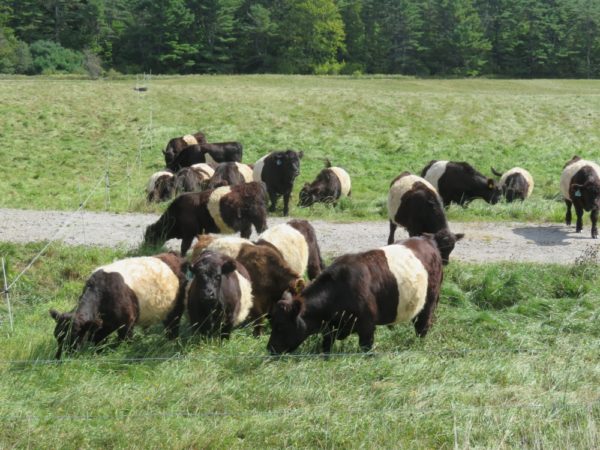Written by Rachel Bouvier.

As an environmental economist, member of GrowSmart Maine, and an avid hiker and “consumer” of conservation land, I testified in front of the Ag, Forestry and Conservation Committee back in December. Here are some highlights of my testimony.
Many municipalities around Maine are concerned with the tax-exempt status of some conservation lands. The fear is that by removing these properties from the tax rolls, the towns will lose out on some much needed revenue. But the relationship between the amount of conserved land in a municipality or a state and its ultimate net revenue (revenue minus expenses) is not straightforward. Here are just a few of the economic benefits of conserved farmland.
To learn more about what your town can do to support & encourage farming, join us at our January 18th forum on farm friendly communities co-hosted by GrowSmart Maine & Maine Farmland Trust.
First, conserved farmland has been shown to have a positive effect on surrounding property values in many cases. People want to live near open space, and are willing to pay a premium to do so. This effect may lead to an increase in tax revenues, as those property values appreciate more quickly than others.
Second, conserved farmland does not add to a municipality’s expenses the way that residential development does. In fact, the “cost of service” associated with working lands and open space has been estimated to be $0.35 per dollar of revenue raised, compared to $1.16 for residential lands (source). In other words, building more houses can actually be a drain on a municipality’s finances, rather than the opposite.
Check out more here – Farmland Information Center Fact Sheet: Cost of Community Services
Third, participants in farmland conservation programs have been shown to be more likely to invest in their property, more likely to have productive operations, and more likely to keep their land in farming, compared to nonparticipants. (Lynch, Lori and Wesley N. Musser. 2001. A Relative Efficiency Analysis of Farmland Preservation Programs, Land Economics 77(November):577-594.)
Fourth, conserved farm land can help a municipality to avert costly expenditures. The amount of undeveloped land in a watershed is associated with improved water quality, reducing water treatment costs. Farmland also reduces impervious surfaces, leading to reduced stormwater runoff. Conserved farmland near a water body can help protect from storm surges or flooding, as long as proper management strategies are in place. All of these services can help a municipality save money in the long run.
Continue the conversation at our January 18, 2018 Forum in Windham: Growing Farm Friendly Communities.
Finally, there are several non-monetary benefits to conserved farmland – including access to local foods, education, and preserved rural character. While quality of life and a sense of place may not be able to be easily monetized, neither should they be ignored.
Rachel is the Treasurer of the Board at GrowSmart Maine, owner operator of rbouvier consulting, and lives with her family in Portland.

